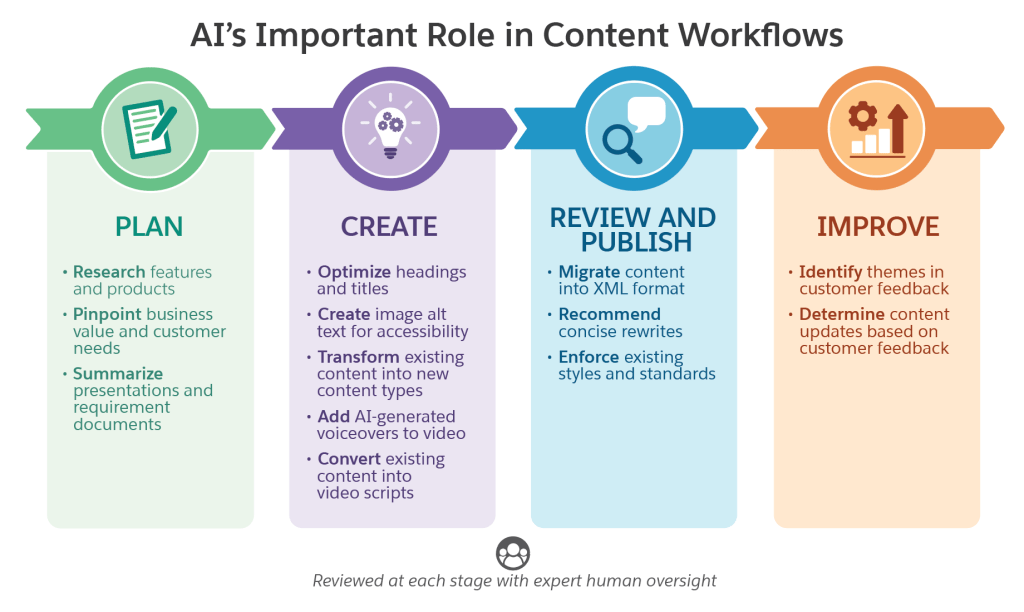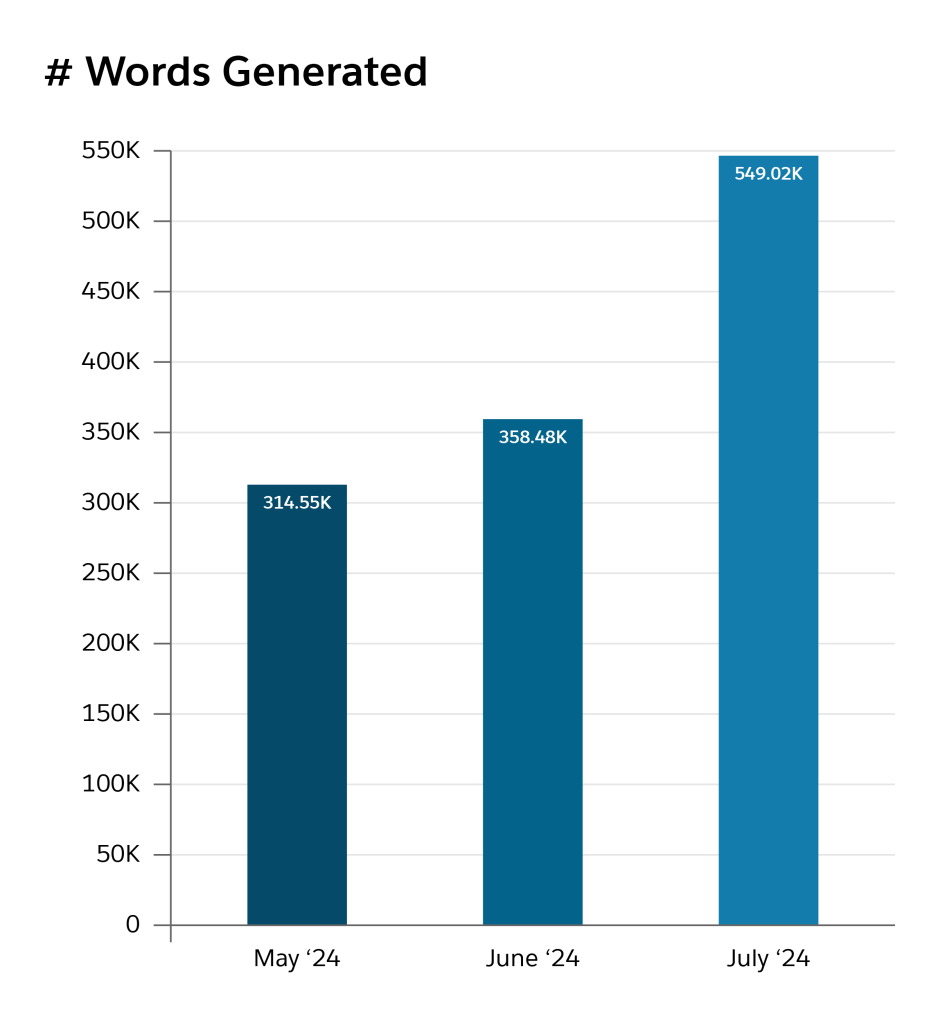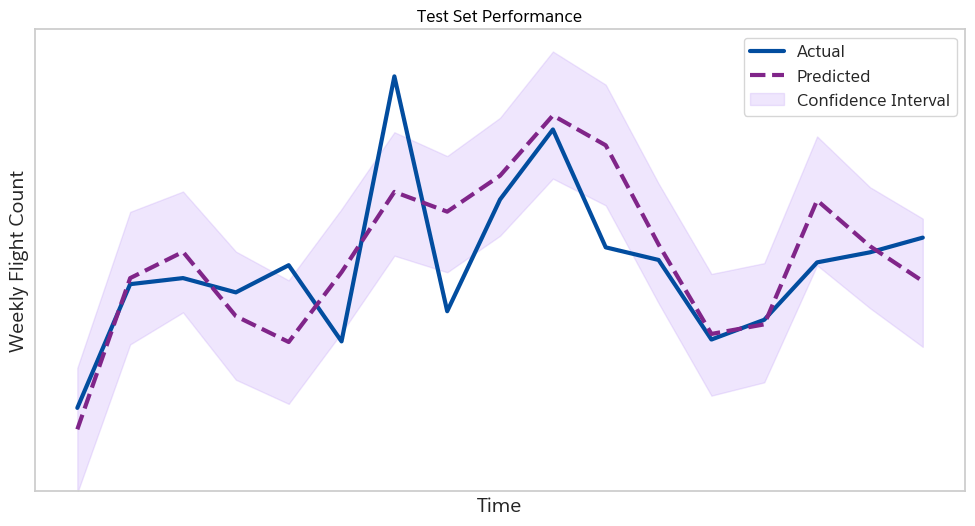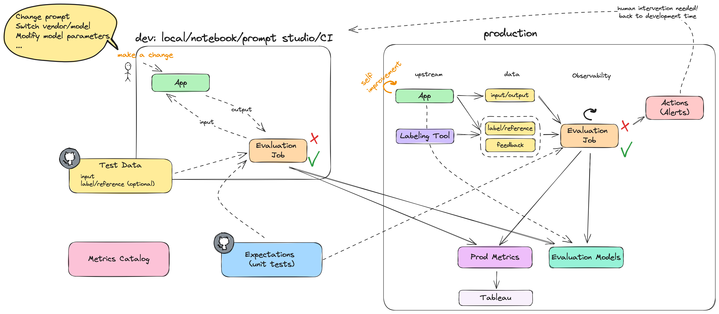
By Jody Bleyle and Dean Atchison.
Salesforce supports its customers — including developers, administrators, and end users — by creating and maintaining a robust product documentation library that comprises over 100,000 customer-facing documents. These documents provide implementation guidance, best practices, technical details, and problem-solving tools that help customers get the most out of Salesforce’s products and platforms.
Managing such a large and diverse collection of content comes with its own set of challenges. As new software is developed, new documents are created and existing documents must be kept up-to-date, accurate, and relevant to meet the needs of users. Ensuring consistency across such a vast content library adds another layer of difficulty.
To address these challenges, Salesforce has turned to artificial intelligence (AI) to improve documentation efficiency and accuracy. As a result, users receive better support, get more value, and have a more positive experience with Salesforce products.
Understanding Technical Challenges in Content Management
Salesforce’s content team faces some challenges in maintaining such critically important content:
- Content at Scale: The task of managing a vast number of documents, including help topics, developer docs, and Trailhead modules, is monumental. The sheer volume of content introduces complexities in maintaining consistency, avoiding duplication, and ensuring that all documents are up-to-date with the latest software changes.
- Consistency and Accuracy: Inaccuracies in documentation can lead to user frustration and impede product adoption. Achieving consistency in tone, style, and information across thousands of documents requires a high level of precision. Any errors or outdated information can quickly spread throughout the content library, adversely affecting the user experience and diminishing trust in the documentation.
- Customer Feedback Processing: Effectively processing and analyzing large volumes of customer feedback is vital for ongoing improvement. Knowing common pain points and areas where users have trouble can help the team decide what to update. This feedback loop is essential for refining content strategies and enhancing overall user support.

Using AI to Tackle Volume Management Issues at Scale
AI revolutionizes the creation of technical videos by creating scripts from existing content and providing AI-generated voice-overs. Using AI, the content team plans to produce a greater volume of technical video content, without compromising on quality or accuracy.
AI also makes it easier to find related content at scale, which reduces duplication and improves accuracy, consistency, and usefulness. For example, if content about authentication already exists, the team may decide not to create new content, but instead, use the existing content. Or, when updating information about a feature, the team can find related documents that may also need changes.
Identifying related content also lets the team point users to the recommended content for a particular job. For example, when new technology is released, the team can identify documents for the replaced technology and update it with links to the new documents. Identifying related content helps manage the size of the content library and keeps documents consistent and more helpful for users.

Illustration of how many words the Salesforce content writers are generating month over month using their generative AI tool.
Improving Accuracy with AI
AI is speeding up the content team’s ability to analyze and process customer feedback at scale. AI identifies common themes, such as “additional information needed”, “inaccurate conent”, and “broken links”. It can also pull out common themes for a large set of feedback on a highly trafficked page and offer suggestions. By efficiently processing large volumes of feedback data, AI helps prioritize updates and improvements.
Previewing the Future of AI in Content Management
Salesforce is exploring new AI applications in content management, including advanced translation, content delivery via conversational AI, and content gap analysis.
As AI technology advances, it opens up new opportunities for innovation in content processes. The Salesforce content team is following these advancements to push the boundaries of what’s possible in all phases of the content management lifecycle to power a trusted autonomous future.
AI is transforming the way content is created and managed at Salesforce. By tackling key technical challenges, AI is improving efficiency, accuracy, and user satisfaction.
Learn More
- Stay connected — join our Talent Community!
- Check out our Technology and Product teams to learn how you can get involved.






